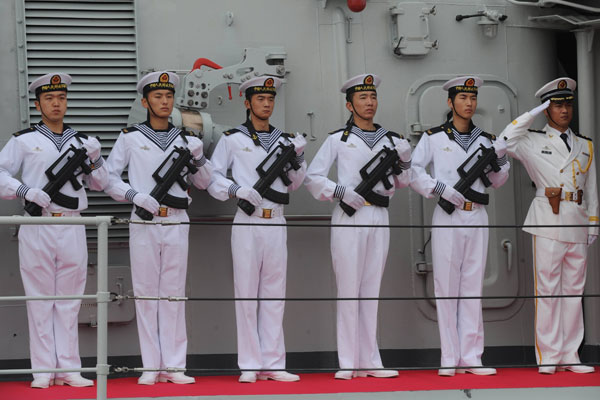China Streamlines Its Maritime Forces
Dean Cheng /
As the Chinese National People’s Congress reveals various governmental restructurings (not to be mistaken for reforms), an important one is the streamlining of Chinese maritime law enforcement forces.
The various Chinese maritime law enforcement agencies, including the coast guard, fisheries enforcement, and anti-smuggling police forces, will be consolidated over the coming several years under the purview of the State Oceanic Administration (SOA). These various forces will serve alongside the SOA’s own China Maritime Surveillance forces.
This consolidation will not only allow Beijing to better apply its burgeoning civilian maritime law enforcement resources against smugglers and foreign fishermen; more importantly, it will provide the central authorities much better ability to support its various maritime claims, whether it is with Japan, the Philippines, or the other Southeast Asian states.
Given the range of agencies that currently have some responsibility for maritime law enforcement, streamlining the system would improve efficiency by reducing redundancies (and attendant overhead costs). Moreover, it would reduce some of the bureaucratic competition that seems to be underway to protect “Chinese sovereignty” over various offshore islands, reefs, and shoals.
Ideally, this bureaucratic streamlining should therefore lead to more responsible Chinese behavior and greater accountability. There will be far less opportunity for the Chinese to deny responsibility for a maritime presence in disputed waters; Beijing will therefore hopefully be more amenable to discussion and negotiation.
But the ongoing tensions in the Senkakus, underscored by the recent Chinese announcement that it was dispatching survey teams to the islands, suggests that the opposite may in fact occur. Beijing may be consolidating its control in order to have a more finely honed instrument with which to coerce its neighbors.
Ironically, that same bewildering array of agencies has also given Beijing an excuse when confronted over dangerous behavior. The more streamlined the organization, the less the Chinese can claim that the central government has no control over the zealous enforcement of Chinese sovereignty claims, whether regarding the Senkakus or the South China Sea.

